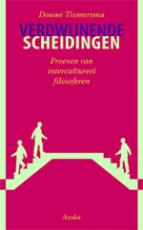Advaita Post - Volume 14, No. 21
November 24, 2013
Text Satsang
From an Advaita talk with Douwe Tiemersma, Gouda April 5, 2006
Beyond the boundaries of death
When someone suffers or goes through a period of mourning, that suffering won't truly dissolve until identification with all and everything from out of the 'me' disappears. Then there can still be a painful situation, but the greatest part of that pain is already gone.
It's great that you're talking about this now because I have a friend who's lost two children and has been painfully stuck to that for over 15 years. Today I received an email from her which encouraged me to think that she might be moving in the direction of Advaita. That would be nice...
Apparently there's also something in your friend which notices the suffering disappears when she becomes more open. Of course, it's understandable if you lose two children. That's terrible and I wouldn't do anything to dismiss it, but when that grief just stays, then eventually you're going to look at where the biggest problem lies.
I have the feeling that it's become an identity.
Absolutely. So it's entirely based on an 'I', and when that's structural, then it's part of the identity. When terrible things have happened that's exactly where you see it. That is, with exceptional things which you easily take into yourself, into your identity. Just look at how much space is created when it's finally released.
You'll also need to see very clearly that the desire to help from an 'I' situation is always an 'I'-interest. Sometimes that's very obvious, sometimes very subtle.
I've done that too with an ex-boyfriend...
Then it may be wise temporarily to just say: stop. When you feel that those 'I' forces have less of an impact on you, then there's a new situation. But it's good to break through that wish to offer help, not only for yourself, but also for the other. Because that other has become addicted to your help.
Actually, it's exactly the same within your own life.
Yes, when you have a little insight then you know the relationship between yourself as insight and the 'I'-self. Then from that insight-self you can be hard with that 'I'-self. Occasionally it's quite healthy to do so. But on the other hand, there's no difference between your insight-self and your 'I'-self, because it's all you. Certainly there are different levels with different conditions: the one more restricted, the other less restricted. So on the one hand you can be tough, on the other hand you can say to yourself: just relax, I am that too. You can get along with yourself in a friendly manner, and of course that part is good. But the most important thing is that the emphasis lies on the more spacious levels so that the limitations can dissolve. I am myself already, why should there be this cramp of an 'I' sitting inside me somewhere? And that works for others too, because when there is openness the other recognizes it: there is openness, so who needs this tension? Frequently this happens without words. With consolation and mourning I've seen it so often: all these people who are busy moaning, and the person involved falls even deeper into the pit.
But if you don't participate in a grieving process like that it's often thought: why is that person not crying? I've experienced that, too.
When there really is an open being, it's no longer a personal feeling and people can just hiccup against it. But surely, they can still experience that you're not 'cold'. Because in the emotions everything is open too, you're just not mourning in the same way that they are. People can be surprised about it because it stands out. But when they get a bit beyond it they also experience that it's the most valuable.
It's actually a much deeper attention.
Of course. It's even such an attention that you are completely identical to the self of that other. Now that's a deeper attention. The other is going to notice that there is no fear of death in this openness. As long as there is something of an 'I'-center there is the fear of death. And when there's been a death you frequently see it, too: people sit around lamenting about their own mortality. Surely it stands out then when there's someone there who has no fear of death. Then it's also clear why that's a helpful situation. Isn't it the very best help when the whole sphere is lifted beyond the boundaries of death?
****
Er is geen tweeheid
als je ontspannen bent
in zelf-bewustzijn
is dat duidelijk.
Boeken
Douwe schreef en redigeerde gedurende zijn leven boeken. Via onze uitgeverij zijn deze nog verkrijgbaar.



